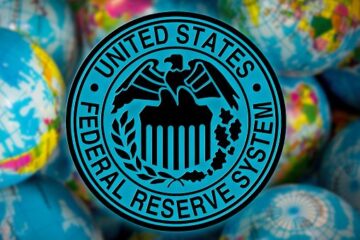An increase in opioid prescription approvals and illegal practices by opioid manufactures and sellers led to a national opioid crisis, which the U.S. Department of Health and Humans Services declared an epidemic in 2013.
The crisis led to several government lawsuits against the companies involved and eventually forced major retailers and drug makers into national settlements with several state Departments of Justice.
Related: Bankrupt retail chain’s CEO pay package threatens its future
Walmart, Walgreens and CVS reached separate settlements with several states in November and December 2022, consisting of $5.7 billion by Walgreens, $5 billion by CVS and $3.1 billion by Walmart, according to a statement from the California Department of Justice. In July 2022, opioid manufacturers Teva and Allergan reached a settlement for $6.6 billion.
Rite Aid, however, didn’t participate in a settlement and instead in March 2023 faced a complaint from the U.S. Department of Justice alleging it knowingly filed unlawful prescriptions for controlled substances.
Facing financial distress with $3.3 billion in debt hanging over its head, tough competition from competitors and the prospect of shelling out over $1 billion for an opioid settlement, Rite Aid filed for Chapter 11 protection on Oct. 15. 2023.
Rite Aid has closed 351 of the 2,100 stores it operated in the U.S. when it filed for bankruptcy.
Smaller drugstore chains have also faced financial distress leading to Chapter 11 filings. Hazard, Ky.-based Rx Discount Pharmacy on May 1 filed for Chapter 11 bankruptcy reorganization in the U.S. Bankruptcy Court for the Eastern District of Kentucky in London.
The pharmacy chain operates seven drugstore and medical-related businesses in Kentucky but did not specify a reason for filing bankruptcy.
Related: Popular sporting goods chain faces Chapter 11 bankruptcy
assA woman is shopping in a pharmacy. (posed shot) Photo: Jens Kalaene/dpa (Photo by Jens Kalaene/picture alliance via Getty Images)
picture alliance/Getty Images
Optio Rx seeks debt-for-equity exchange in Chapter 11
Another larger chain of pharmacies operated by Optio Rx of Northbrook, Ill., on June 7 filed for Chapter 11 protection in the U.S. Bankruptcy Court for the District of Delaware in Wilmington seeking to complete a debt-for-equity exchange in a restructuring support agreement with its secured lenders, hoping to continued as a going concern.
The debtor reported $10 million to $50 million in assets and $100 million to $500 million in liabilities in its petition.
Optio Rx operates four primary specialty pharmacy business segments: retail dermatology pharmacies, compounding pharmacies, hospice pharmacies and fertility pharmacies. The company has 18 locations in seven states that employ 260 workers.
The debtor and 26 affiliates, founded in 2018, said in court papers that the company had difficulty generating organic growth and boosting profitability at its individual pharmacies. The company’s Ebitda had plummeted over the last three years as it earned $16.1 million in Ebitda in 2021, $14.5 million in 2022, $6.2 million in 2023, and is on target to earn $2 million in Ebitda in 2024 after generating only $500,000 in the first quarter.
More bankruptcy:
Popular movie theaters owner files Chapter 7 bankruptcyStruggling housing brand files Chapter 7 bankruptcy, will liquidatePopular restaurant chain shares bad Chapter 11 bankruptcy news
The debtor claimed several problems led to its distress including some of its profitable products had been discontinued, a new compounding strategy had failed, a new sales force had increased costs, and two former employees had started two competing pharmacies that cut into its business.
The company’s cash interest payment obligations under its prepetition loan documents are $4 million per quarter or $16 million per year. The debtor said that it did not have the ability to pay upcoming interest payments to its prepetition secured lenders with an impending maturity on June 28, 2024.
The company in July 2023 unsuccessfully sought to sell certain segments of the company. On May 9, 2024, the debtor approached its prepetition secured lenders to restructure its debt and entered a restructuring support agreement with its first out and last out lenders for a partial debt-for-equity swap. General unsecured creditors are expected to be paid in full, with 80% to 95% of claims paid on the effective date of the reorganization plan and 5% to 20% paid on the one-year anniversary of the effective date.
The debtor’s prepetition debt includes $32.9 million in term loans, $9.8 million in Healthy Choice incremental term loans, $5 million in revolving loans, $57.1 million in last out term loans, $5 million in first out term loans and $17. 6 million in accrued fees and interest. It also owes about $73.8 million in subordinated unsecured notes to administrative agent Aves Management, $29 million in unsecured seller notes, $2.4 million in unsecured trade debt and $1.5 million in secured trade debt.
Related: Veteran fund manager picks favorite stocks for 2024


